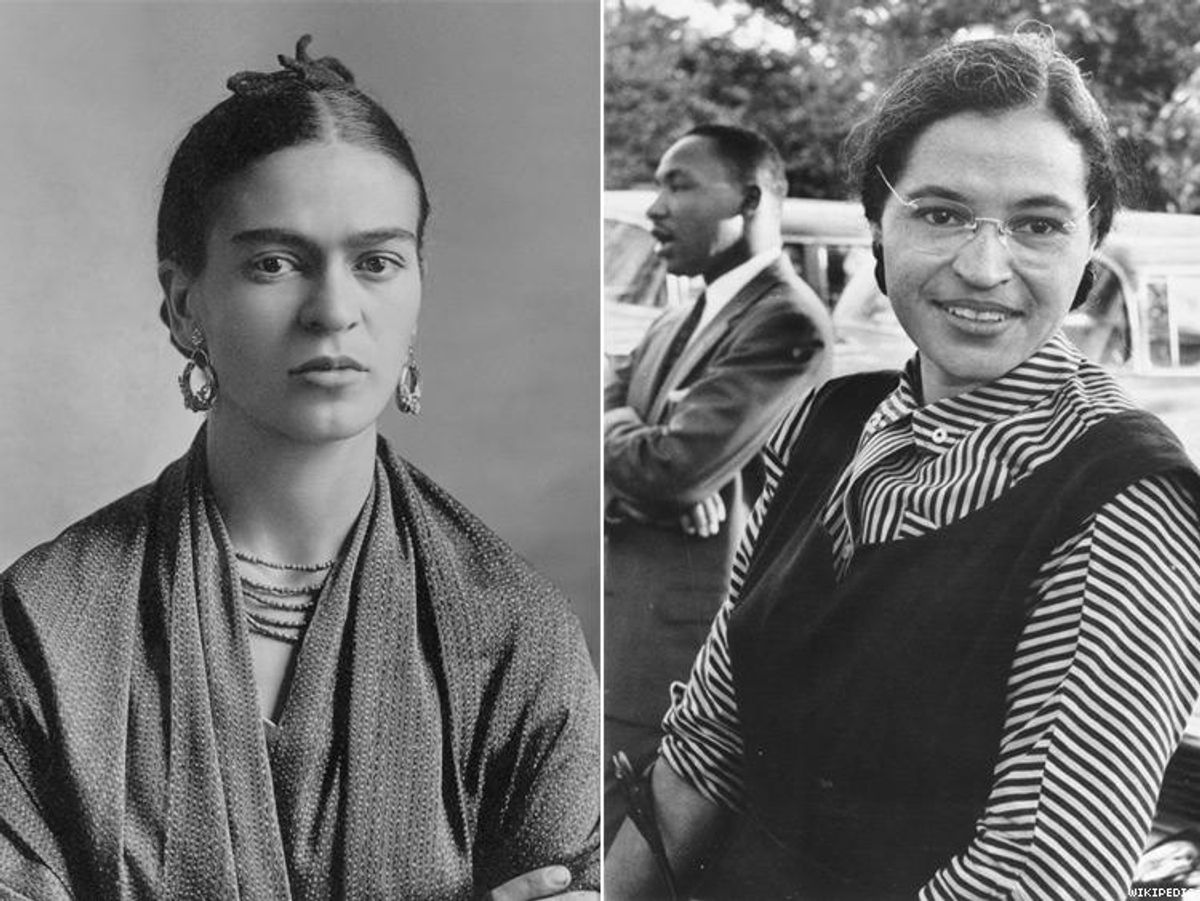Despite what may have been a well-intentioned idea, Snapchat failed fairly miserably with its specialized lenses for International Women's Day. It's easy to guess without visual proof why a Rosa Parks or a Frida Kahlo filter (both of which Snapchat offered to mark the occasion) could be problematic, but the social networking site even managed to botch its Marie Curie filter.
It's not the first time the app, known for its cartoonish filters that offer animal ears and noses for users' photos, has come under fire for offering an insensitive filter. Last spring Snapchat released a Bob Marley filter that gave users dreadlocks and blackface. But the outrage on Twitter from that filter fail was not enough to teach developers to steer clear of racist stereotypes. Just four months later Snapchat released a highly offensive Asian filter that was removed following an instant backlash.
Still, it's not clear what it will take for Snapchat filter creators to develop some sensitivity. To celebrate International Women's Day, the app makers released filters of civil rights hero Parks and bisexual artist Kahlo with sepia-toned filters, which change the color of the Snapchat users' skin. In addition to the skin-tone change, the filters lighten the women's eyes, which users have called out as "whitewashing."
Meanwhile, the lens intended to honor the Nobel Prize-winning chemist Marie Curie, appropriately enough, included beakers and test tubes filled with bubbling liquids. But it also mysteriously slims the face of the user and adds smoky eye makeup when the user opens her or his mouth. It's intended as soot from a chemistry experiment but conveniently lands on the users' eyelids.
Perhaps in light of past lens debacles, prior to launching the 24-hour International Women's Day filters, Snapchat conferred with the Frida Kahlo Corporation and the Rosa and Raymond Parks Institute for Self Development for help in animating the filters, according to Mashable.
Regarding its involvement with input on the Parks's filter, a spokesperson for the Rosa and Raymond Parks Institute said in a statement, "We must help all young people to know one another as persons and to respect and care about one another."
A spokesperson from the Frida Kahlo Corporation implied that including Kahlo as a lens works for the medium.
"In the age of the selfie, Frida is considered to be the first selfie artist, she told a story of love, life, strength and passion thru her self-portraits," said a representative.
Although Snapchat made an attempt to get the special lenses right, and despite some positive responses on Twitter, the filters of the pioneering women the app intended to honor were met primarily with irritation and outrage.



















































































Viral post saying Republicans 'have two daddies now' has MAGA hot and bothered